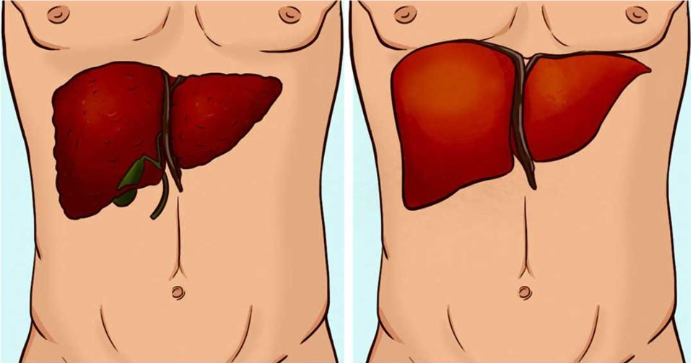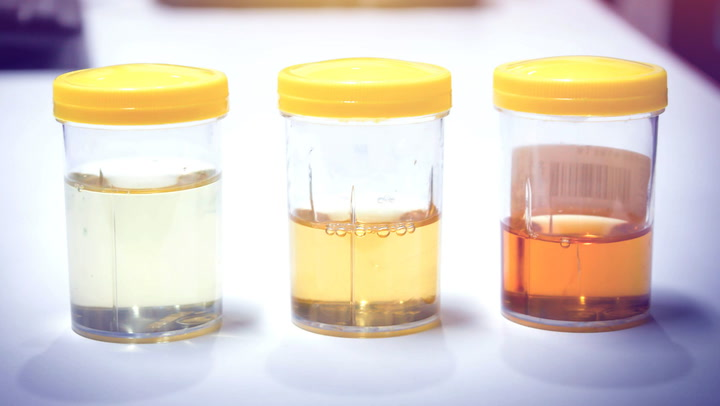The liver is one of the most vital organs in the body, responsible for detoxifying blood, aiding digestion, and managing various metabolic functions. When it begins to fail, the consequences can be serious and potentially life-threatening. Sadly, liver failure often develops silently, making it tough to spot in its early stages. By learning to recognize the warning signs, you can seek medical advice promptly, increasing the chances of effective treatment and recovery.
Why You Need to Recognize Liver Failure Early

Understanding the signs of liver failure is not just about awareness—it’s about taking control of your health. Early detection can be the difference between manageable treatment and severe complications. Knowing what to look for can help you or a loved one avoid a critical situation.
Key Signs and Symptoms of Liver Failure
Here’s a closer look at the warning signs of liver failure, some of which may appear subtly and others more dramatically:
1. Unusual Fatigue and Weakness
Feeling unusually tired or weak? This could be one of the earliest indications of liver issues. When the liver isn’t functioning properly, toxins can accumulate in the body, leading to extreme fatigue. The fatigue often feels different from regular tiredness—it’s more persistent and harder to shake off. This symptom is the body’s way of signaling that something might be wrong internally, making it crucial to listen to your body.
2. Yellowing of the Skin and Eyes (Jaundice)
Jaundice is one of the most visible and alarming signs of liver failure. It occurs when the liver cannot effectively process bilirubin, a yellowish substance produced during the breakdown of red blood cells. As a result, bilirubin builds up in the blood, causing a yellowish tint to the skin and eyes. If you notice any yellowing, it’s essential to seek medical help immediately, as jaundice often indicates severe liver damage.
3. Abdominal Pain and Swelling
Liver issues often present with discomfort or pain in the upper right side of the abdomen. This pain can vary from mild to severe, sometimes feeling like a sharp, stabbing sensation. Additionally, fluid can accumulate in the abdominal cavity, causing visible swelling. This condition, known as ascites, is a clear red flag for liver disease and often requires medical intervention.
4. Persistent Nausea and Vomiting
Feeling constantly nauseous or experiencing frequent vomiting? These symptoms can be related to liver dysfunction. The liver plays a key role in detoxifying the body, and when it’s not working properly, toxins may build up, causing nausea. Persistent nausea is more than just an upset stomach—it could be an indicator that your liver is struggling to maintain balance.
5. Loss of Appetite and Sudden Weight Loss
A sudden drop in appetite or unexplained weight loss can be early signs of liver failure. You might feel full even after eating very little, which can make it challenging to consume enough nutrients. If this feeling is coupled with other symptoms like fatigue or abdominal pain, it’s worth investigating further with a healthcare provider.
6. Changes in Urine and Stool Color

Your urine and stool can offer clues about your liver health:
- Dark Urine: Darkened urine is often caused by increased bilirubin levels, which is a sign of liver malfunction. If you notice your urine becoming darker despite staying hydrated, it’s time to get it checked.
- Pale or Clay-Colored Stools: The liver produces bile, which gives stools their brown color. If your stools appear pale or clay-colored, it could indicate a problem with bile production or flow, hinting at potential liver issues.
7. Chronic Itchy Skin
Persistent itching without an obvious rash or other skin condition could be due to liver problems. When bile salts accumulate under the skin as a result of liver dysfunction, they can cause severe, chronic itching. This symptom can be extremely uncomfortable and is often resistant to common treatments for itching, making it a potential sign of liver trouble.
8. Easy Bruising and Bleeding

The liver plays a key role in producing proteins necessary for blood clotting. When the liver starts to fail, these proteins decrease, leading to increased bruising or prolonged bleeding from minor cuts. If you find yourself bruising more easily or bleeding more than usual, it could indicate an issue with your liver’s ability to produce clotting factors.
9. Confusion and Cognitive Issues
Liver failure doesn’t just impact the body—it can also affect the brain. A condition known as hepatic encephalopathy can develop when toxins that the liver normally filters start affecting brain function. This can lead to confusion, memory loss, difficulty concentrating, and even changes in personality. These cognitive symptoms can be alarming and require immediate medical attention.
What to Do If You Notice These Symptoms

If you or someone you know is experiencing any of the symptoms mentioned above, it is vital to consult a healthcare provider as soon as possible. Early diagnosis and treatment can make a significant difference in outcomes. Tests like liver function tests (LFTs), imaging, or a liver biopsy may be necessary to determine the extent of liver damage and guide the appropriate course of action.
Conclusion
Liver failure can be a silent and dangerous condition, but recognizing the early symptoms can save lives. From fatigue and jaundice to more severe signs like confusion and abdominal swelling, the warning signals are there if you know where to look. Always listen to your body and consult a healthcare provider when something feels off. Early detection and timely treatment can be the difference between life and death when it comes to liver failure. Stay informed, be proactive, and prioritize your health.


